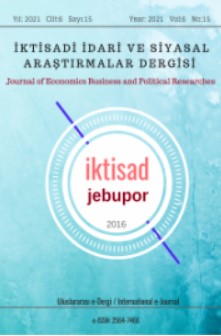Empirical Analysis of Weak Form Efficiency Evidence from The Housing Market in Turkey: Macroeconomic Glance
Empirical Analysis of Weak Form Efficiency Evidence from The Housing Market in Turkey: Macroeconomic Glance
Author(s): Mehmet ÇanakciSubject(s): Supranational / Global Economy, Business Economy / Management, Evaluation research, Financial Markets
Published by: Haci Mustafa Paksoy
Keywords: Efficient market hypothesis; housing markets; efficiency in weak form; macroeconomics; investment;
Summary/Abstract: The aim of this study is to look for an answer to the question of “Is it possible to discuss the existence of an efficient market for the housing market in Turkey?”. It was observed that relatively low housing (mortgage) interest rates were accompanied by price rigidity. Accordingly, in the formation of the housing market definition from the Central Bank (CBRT) database; an empirical analysis was made using the Residential Property Price Index for New Dwellings (NRPPI), the Residential Property Price Index for Existing Dwellings (ERPPI), the Residential Property Price Index (RPPI) and the Hedonic House Price Index (HHPI). The data range for the first three indices is between 1/2010 and 1/2020. Hedonic housing price index data range is between 1/2011 and 1/2020. Unit root tests were used to test the Random Walk Theory, which shows the characteristic condition of the housing market. The results from the study show that above average sustainable returns cannot be obtained from the housing market, as a result the market is poorly efficient. At the same time the housing market in Turkey, the rigidity of prices found along with excess supply situation is worrisome. Therefore, it is necessary to prevent all kinds of manipulative news that may occur in the housing market by the regulatory and supervisory institutions.
Journal: İktisadi İdari ve Siyasal Araştırmalar Dergisi (İKTİSAD)
- Issue Year: 6/2021
- Issue No: 14
- Page Range: 130-141
- Page Count: 12
- Language: English

